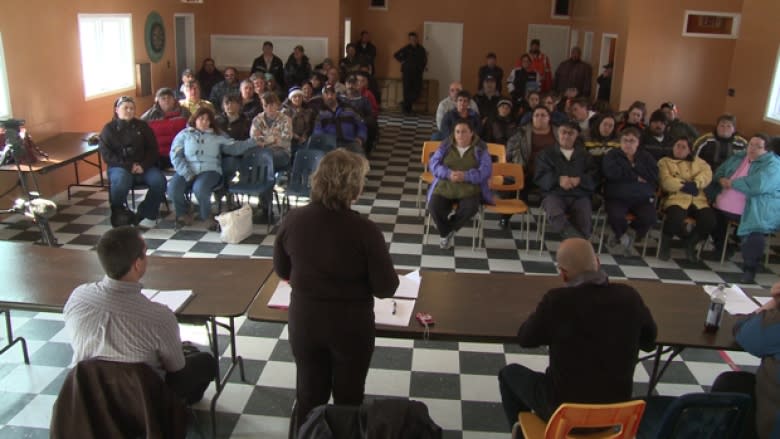Why Black Tickle's residents are so leery about moving
Black Tickle is in crisis mode, again. This time, it's over the loss of the lone gas station, and as people work to solve the problems for the remote Labrador community, the usual and predictable chorus of "why don't they just leave" strikes up.
On paper, you do have to wonder why people would choose to live there. The community is perched on a rock in the middle of the North Atlantic. You won't find a tree for miles around.
There's no road access, no running water, no high-speed internet and no major employer in the community.
Exactly 138 people lived there when I visited a few years ago. I know, because the head of the local service district wrote all the names down on a pad for me from memory.
The last time they voted, almost three-quarters of the people turned down the offer of government money to relocate. If that has you shaking your head, you're not alone. A lot of people can't figure out why anyone still lives there.
I've been to Black Tickle several times over the years covering the fate of the community, and after sitting in the homes of people who live there, I can understand why they don't want to go.
Another place, another time
Life in Black Tickle is almost like living in a different time, and for some that's comforting.
The answer of why people want to stay becomes clearer when you look at Black Tickle's history.
When cod was king, Black Tickle's remote geography, now its biggest hindrance, was its biggest asset. It was the closest community to the rich Labrador fishing grounds. Thousands of people would flock there every summer, earning it the nickname Arborite City for the makeshift shacks that lined the shores.
Young people left school early. Why waste time in class, the thinking went at the time, when you could be out making good money at the fish plant or on the boats?
As people earned money, they put it into their house, doing the work themselves with some help from neighbours, brothers and cousins. People there are hearty, handy and are used to having to fend for themselves, whether it's travelling long distances to cut wood or hauling drinking water in buckets. They stick together.
Dwindling resources
As the fishery shrank, so did the town. The fish plant shut down three years ago, leaving almost no regular work.
Certainly the province didn't help. When the Trans-Labrador Highway was cut through the bush, almost every other community on Labrador's coast was connected, but Black Tickle was left isolated.
Other towns benefited from provincial money to put in clean running water. Black Tickle is left with some residents drinking from ponds.
It's not that the people of Black Tickle aren't ambitious. Many of the young people do very well in school, becoming nurses and teachers, but with little to no work locally, few ever return.
The people left don't have many options.
They're getting older, although their meagre income is matched by the meagre costs of living there. They only need enough money for electricity, food, satellite TV, and the phone bill. The rest they take care of themselves.
Some will tell you they'd rather die than leave the community. The rest of the world has moved on, but Black Tickle is left in a different time. The outside world is a very different place, a place they don't have the skills or interest to compete in.
They own their own house, but if they left, no one would buy it.
A difficult set of options
Some have never been out of the community, never driven on a paved road, seen a traffic light or ridden an elevator. The thought of leaving home terrifies them.
Moving to Happy Valley-Goose Bay would mean a life of paying rent, working a low-paying job, trying to learn new skills late in life. They'd be scraping by just like they are now, without any of the freedom or comforts of home they're used to. There's not much in it for them.
So what do we do about the future of this community? I wish I had a brilliant solution to turn this town around.
There is no political appetite to force them to move, as there are too many painful memories of the Smallwood era of the province choosing which communities would live and which would die. You'd have to literally drag some off the barren rock they call home.
Its isolation means the chance of a business setting up there is almost none.
Instead, we're left with the current policy of atrophy. Privately, politicians and officials will tell you it's a waiting game, waiting for the young people to move away, the seniors to die off, waiting until one day the town will simply disappear.
It will be a sad end to a once-prosperous community.



